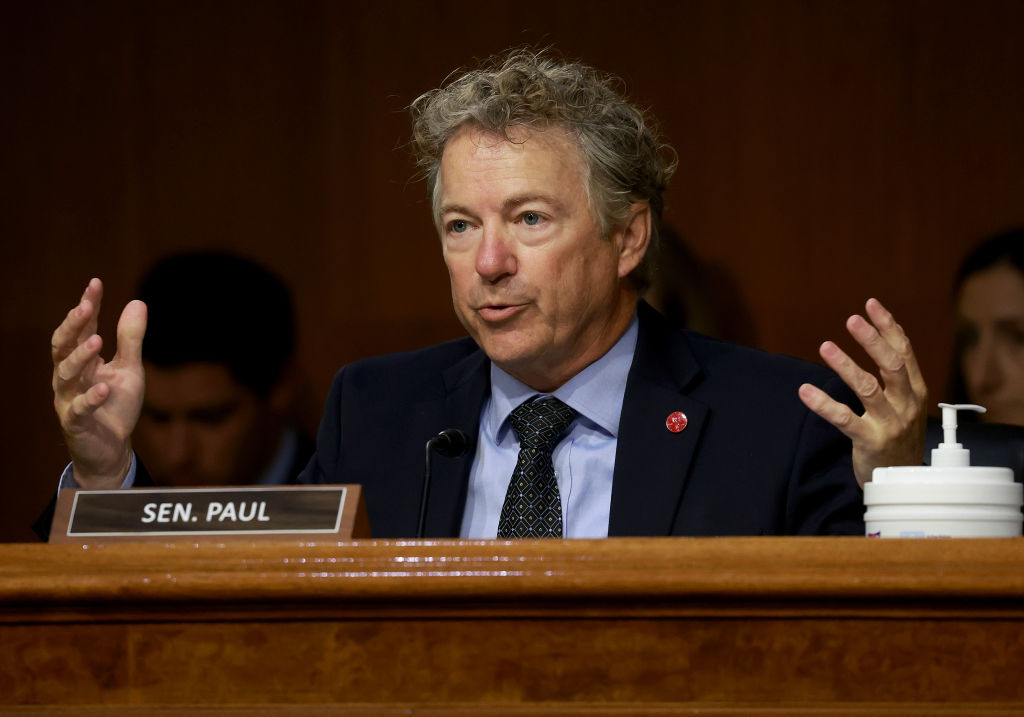Congress hasn’t passed significant gun control legislation since the mid-90s – but that seems destined to change now. Just a month after the Robb Elementary School shooting in Uvalde, TX, and just an hour after the 80-page bill was revealed on the Senate floor, 14 Republicans joined all Democrats in advancing the “Bipartisan Safer Communities Act.” The final vote is expected by the end of the week, and the plan is to have it clear the House and hit the president’s desk before the Fourth of July break. What makes this latest legislation different from the rest, and how likely is it to be the new law of the land?
Big Spending – Ever a Bipartisan Endeavor
 The various measures in the act can be separated into two categories, with just a little bit of overlap: Increased government spending and firearm restrictions. The first commits almost $3.5 billion in tax dollars to a variety of government programs – at a time when consumers struggle to overcome crippling inflation, record-high gas prices, and scarcity that leaves many wondering where the next meal will come from, especially if there’s an infant on formula in the house. The spending is broken down as follows:
The various measures in the act can be separated into two categories, with just a little bit of overlap: Increased government spending and firearm restrictions. The first commits almost $3.5 billion in tax dollars to a variety of government programs – at a time when consumers struggle to overcome crippling inflation, record-high gas prices, and scarcity that leaves many wondering where the next meal will come from, especially if there’s an infant on formula in the house. The spending is broken down as follows:
- $250 million for community mental health.
- $150 million for the suicide crisis hotline.
- $50 million for school-based mental health funding through the Children’s Health Insurance Fund.
- $60 million for mental health training for pediatricians.
- $80 million for pediatric rapid care for mental health.
- $28 million for school-based trauma support.
- $1 billion for safe schools and citizenship education.
- $1.05 billion for school improvements that target increasing student attendance.
- $750 million for grants to fund states that implement red-flag laws.
Compromise on Gun Control

Senate Minority Leader Mitch McConnell (R-KY) right, and Senate Majority Leader Charles Schumer (D-NY) (Tom Williams/CQ-Roll Call, Inc via Getty Images/)
Naturally, it’s the gun control section of the bill, which does overlap with the inclusion of the red-flag funding, that has the most feathers ruffled – on both sides. Democrats wanted a federal red-flag law, but Republicans were hesitant to wade into the inevitable argument about how it would affect the constitutional right every American has to due process.
For some Republicans, this looks like a neat way to sidestep the issue. Such laws already exist in 19 states and the District of Columbia, and it’s no violation of rights on Congress’ part if more states join that list. For those who oppose, however, it might look a lot more like backdoor gun control. One might argue that it trades one grant of federal power for another; rather than allowing US judges to disarm citizens without a criminal conviction, it allows the federal government to use taxpayer money to bribe states to do it instead. Given the effectiveness of a similar tactic used in the 1980s to coerce all 50 states to raise the minimum legal drinking age to 21, the end result seems likely to be the same.
Liberty Nation Legal Affairs Editor Scott D. Cosenza, Esq. delved into the “robust and rapid due process” promised by the Swamp powers in a 2019 policy proposal touted by both Sen. Lindsey Graham (R-SC) and then-President Donald Trump. “There was no associated language for the legislation released, so we are left to wonder what these ‘robust’ due process protections look like,” Cosenza explained. “Will any of the grant money go to lawyers who can defend those threatened with revocation of their rights and seizure of their property? From what we know so far about the red-flag procedure, it seems one-sided and not mindful of due process.” If the law indeed works this way, it leaves the disarmed American spending his or her own money to fight to regain a constitutional right as well as paying through taxation for the disarming itself.
Another major compromise regards the age at which one can purchase a firearm. Democrats asked for the minimum purchase age for so-called assault weapons to be raised to 21. What they and a handful of Republicans settled for was enhanced background checks for the purchase of any firearm for anyone under the age of 21. Rather than a simple criminal background check, anyone aged 18-20 would see their juvenile record and mental health record examined.
 Those supporting this measure argue that it doesn’t block young adults from buying guns. It only adds a layer of precaution to make sure violent or mentally unstable people can’t legally arm themselves until they’ve matured a bit. Others – including some Democrats, even – worry about the rights of the prospective buyer. Rep. Alexandria Ocasio-Cortez (D-NY) opposes this because she worries the mental health aspect would increase stigmatization. She went on to say this violence isn’t a mental health issue, but one of “violent misogyny and white supremacy,” but up to that point, she seems to actually agree with the Republicans who oppose mental health checks.
Those supporting this measure argue that it doesn’t block young adults from buying guns. It only adds a layer of precaution to make sure violent or mentally unstable people can’t legally arm themselves until they’ve matured a bit. Others – including some Democrats, even – worry about the rights of the prospective buyer. Rep. Alexandria Ocasio-Cortez (D-NY) opposes this because she worries the mental health aspect would increase stigmatization. She went on to say this violence isn’t a mental health issue, but one of “violent misogyny and white supremacy,” but up to that point, she seems to actually agree with the Republicans who oppose mental health checks.
According to a 2014 survey, about 7.5% of kids aged 6-17 were on some sort of prescription medication for emotional or behavioral difficulties. A 2016 study released in JAMA Pediatrics proposed that as many as one-in-six – nearly 17% – of US children in that age range had some form of treatable mental illness, such as depression, anxiety, or ADHD. And the problem seems to be getting worse. IBM Watson Health revealed in 2019 that mental illness diagnoses among US children increased 30.5% between 2011 and 2017, and the CDC at that time estimated that 20% of children had a mental, emotional, or behavioral disorder. Also on the rise is the criminalization of fistfights in schools. A couple of decades ago, fighting at school might bring suspension – today it often results in probation. The expanded background check measure does not include language that defines a disqualifying mental health issue or juvenile record – leaving unanswered the question of how many kids today would be deemed unfit to defend themselves until their 21st birthday.

Sen. Rand Paul (R-KY) (Photo by Joe Raedle/Getty Images)
Finally, the act “closes the boyfriend loophole.” Currently, those convicted of domestic abuse against their spouses or partners with whom they have children may find themselves on the prohibited persons list. This measure redefines the qualifying relationship to include dating partners. Proponents of this measure say it saves victims by disarming abusers in their lives. Even those who oppose this would likely agree that, if it works as planned, it would likely accomplish that goal. However, they might also point to the reason for the restrictive nature of the law as it stands: Those either married to or raising children with anyone convicted of such abuse share in the penalty to some degree. The legal fees, jail time, and reduced rights of one affect the other as well. False accusations therefore come with considerably heavier consequences for the accuser than in a less committed relationship. As part of this compromise, lawmakers agreed to a five-year revocation of rights, allowing those convicted of misdemeanor abuse to regain their rights if they otherwise stay out of trouble that long.
Gun Control, Coming Soon?
Senate Majority Leader Chuck Schumer (D-NY) called the bipartisan agreement “real progress,” and Minority Leader Mitch McConnell (R-KY) described it as “a common-sense package.” The president, of course, says it isn’t enough – but it’s a step in the right direction. Sen. Rand Paul (R-KY) has spoken out against the bill and promised to introduce amendments to square it up with the Constitution, but so long as ten from the GOP are willing to pass it as is, he’s simply outnumbered. With 14 Republicans moving the bill along, it seems likely to pass the floor vote sometime this week – and though the House GOP plans to resist, the Democrat majority will likely pass it easily enough. Barring some major fallout in the Senate, the Bipartisan Safer Communities Act may well be the law of the land by Independence Day – however ironic that may be.



